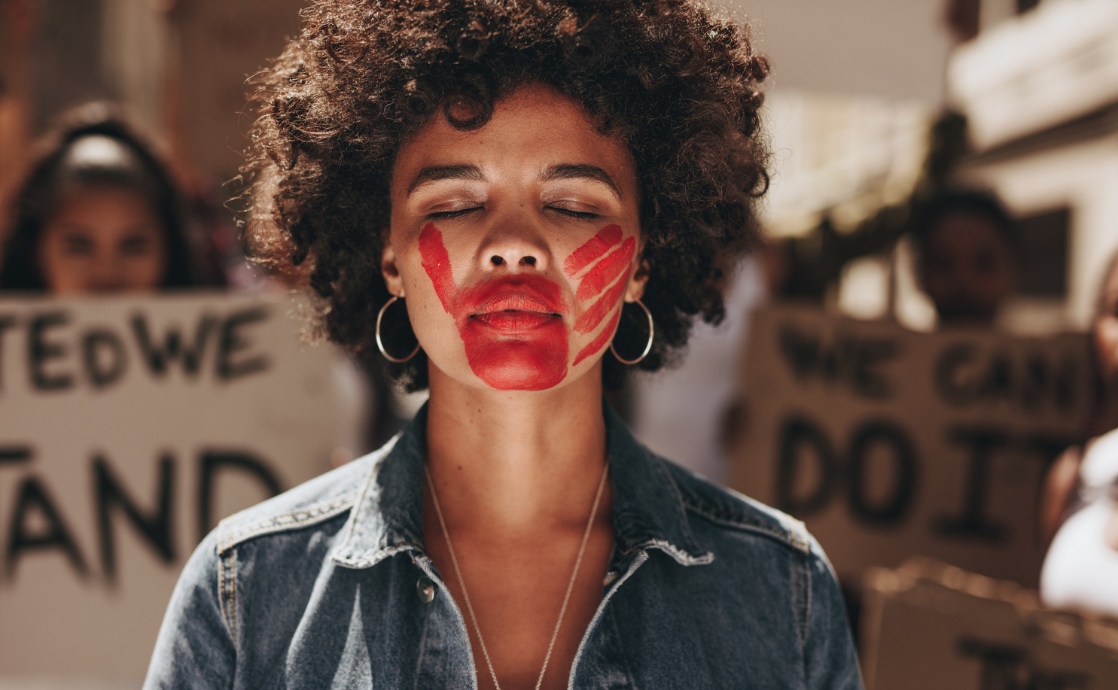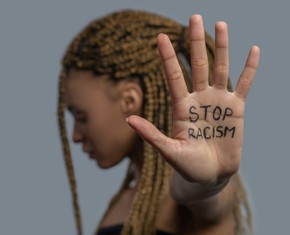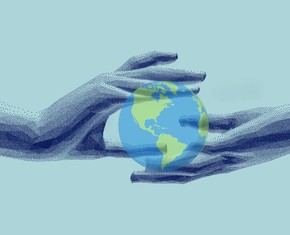The views expressed in our content reflect individual perspectives and do not represent the authoritative views of the Baha'i Faith.
My father, God bless his heart and rest his soul, had an enormous amount of violence in him. He inherited it from his father and from World War II, where he fought as a Marine in the Pacific.
He never talked much about the war itself or his combat experiences, but my uncle once showed me an American newspaper clipping that said my father had killed 36 Japanese soldiers on the island of Tarawa in “close-order engagements” during a single battle. According to the article, he killed some of them with his bare hands when he ran out of ammunition.
I learned quickly as his oldest son that men don’t get over that kind of violence. Ever.
RELATED: What War Did to Me – and to Us
But my father, to his credit, also had an unusually well-developed sense of honor, chivalry, and noblesse oblige, and had been trained by his parents to never strike a woman. He understood the essential unfairness and brutality of domestic violence, of a larger person physically attacking a smaller one, and never once raised a hand to my mother, his wife of 63 years.
Sadly, that can’t be said about all men.
The vast majority of domestic violence incidents are perpetrated by men against women. In the United States alone, domestic violence hotlines receive 20,000 calls a day. On average in the U.S., twenty people are abused by a domestic partner every minute. One in fifteen American children suffer from exposure to domestic violence each year; and 90% of those children witness that violence.
Many countries have much higher incidence levels of domestic violence than the United States. In some cultures, wife-beating is seen as normal, acceptable, and even legally allowable.
We know, from multiple research studies in many countries, that children exposed to such violence have much higher levels of generalized aggression themselves, both as children and as adults. As you might expect, children who experience or witness domestic violence are much more likely, when they grow up, to become abusers in their adult relationships. Like so many kinds and types of devastating abuse, domestic violence tends to create a vicious generational cycle, causing more disruptive behavior, problems with mental and physical health and long-term patterns of substance abuse, child abuse and violence. That cycle of violence can only continue if we let it.
The Baha’i teachings speak out vociferously against any and all forms of domestic abuse and violence. In 1993, the democratically-elected governing body of the world’s Baha’is, the Universal House of Justice, wrote:
The lack of spiritual values in society leads to a debasement of the attitudes which should govern the relationship between the sexes, with women being treated as no more than objects for sexual gratification and being denied the respect and courtesy to which all human beings are entitled … For a man to use force to impose his will on a woman is a serious transgression of the Baha’i Teachings. …
The use of force by the physically strong against the weak, as a means of imposing one’s will and fulfilling one’s desires, is a flagrant transgression of the Baha’i Teachings. There can be no justification for anyone compelling another, through the use of force or through the threat of violence, to do that to which the other person is not inclined. Abdu’l-Baha has written, “O ye lovers of God! In this, the cycle of Almighty God, violence and force, constraint and oppression, are one and all condemned.” Let those who, driven by their passions or by their inability to exercise discipline in the control of their anger, might be tempted to inflict violence on another human being, be mindful of the condemnation of such disgraceful behaviour by the Revelation of Baha’u’llah.
RELATED: Taking a Stand Against Domestic Violence
In that same statement from the Universal House of Justice, the Baha’i world took a strong stand against any form of domestic violence:
Baha’i men have the opportunity to demonstrate to the world around them a new approach to the relationship between the sexes, where aggression and the use of force are eliminated and replaced by cooperation and consultation… No Baha’i husband should ever beat his wife, or subject her to any form of cruel treatment; to do so would be an unacceptable abuse of the marriage relationship and contrary to the Teachings of Baha’u’llah.
My father didn’t do everything right as a parent, but he did teach me never to hit a woman. He said a man could not commit a more disgraceful and cowardly act.
The raising and training of boys has a direct impact on the deadly epidemic of domestic violence our societies and cultures now exhibit. When we fail to teach our sons how to express their emotions and communicate in a calm, consultative manner, we tacitly encourage them to use their fists instead. Everyone experiences anger — so it’s our duty and responsibility, as parents, to teach our children how to deal with their anger in constructive ways.
With that in mind, I tried to give my sons the same message my father gave me. Raising boys with the idea that striking any woman exemplifies a deep failure on their part has shown me that violence doesn’t have to become an unbreakable cycle. So if you have sons, do them the favor of teaching them never to hit a woman. You’ll give your sons, and the daughters of the world, a great gift.
















Comments
Sign in or create an account
Continue with Googleor